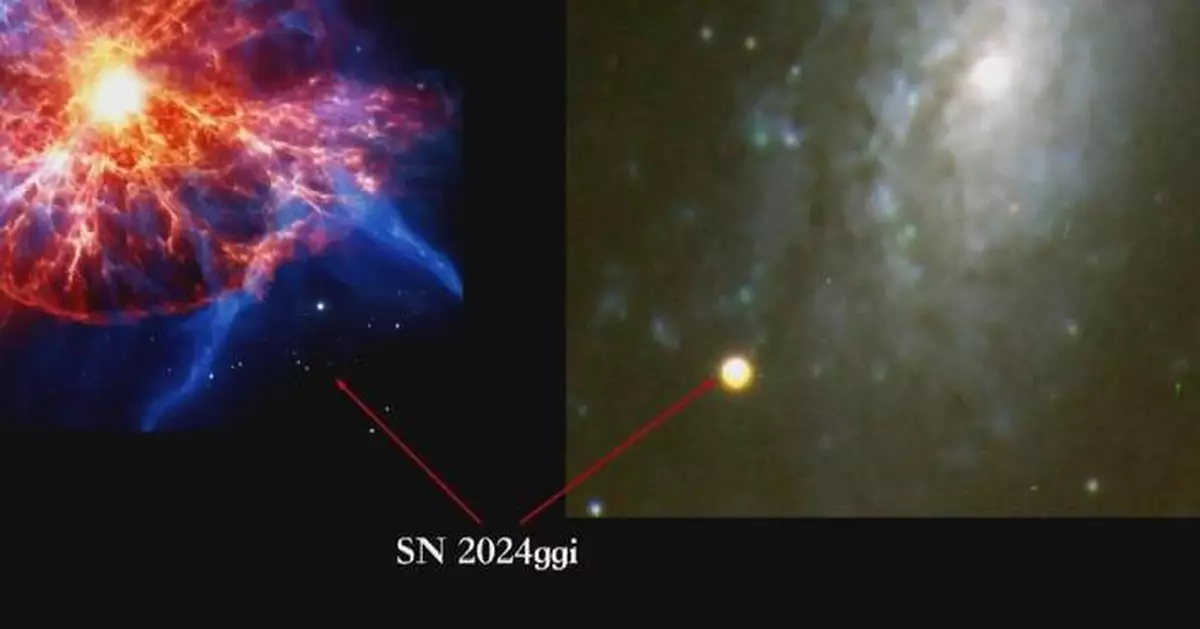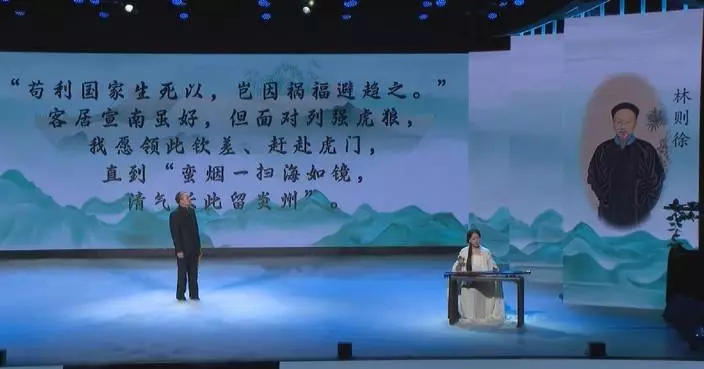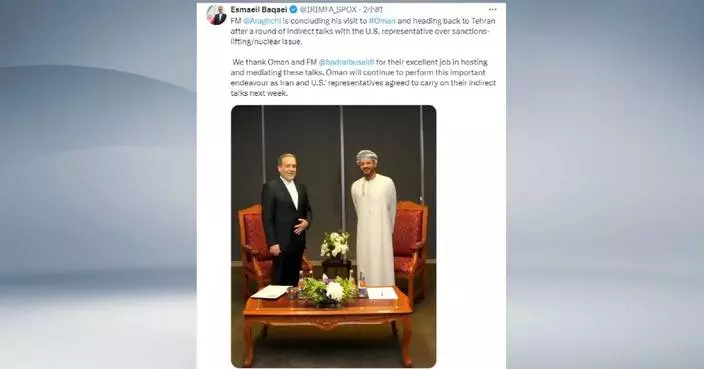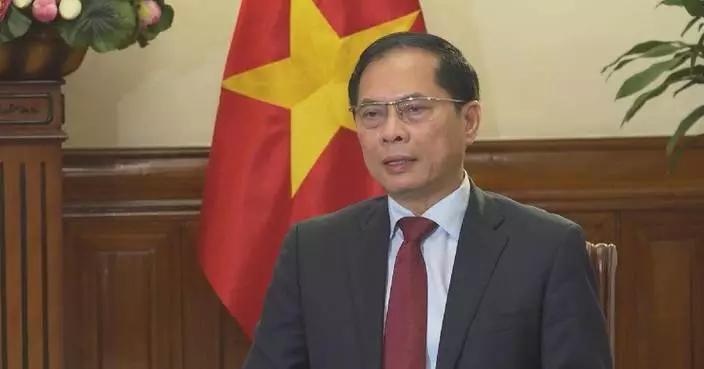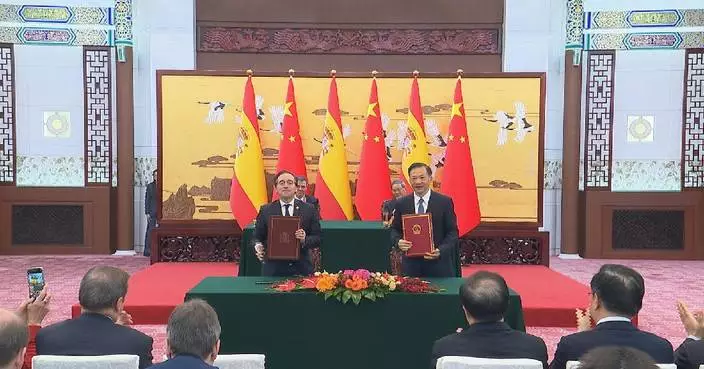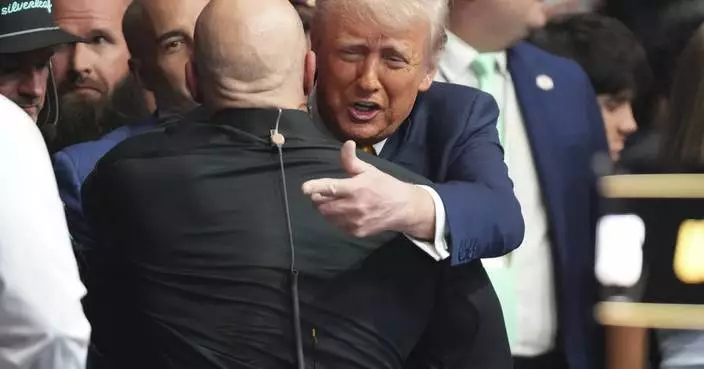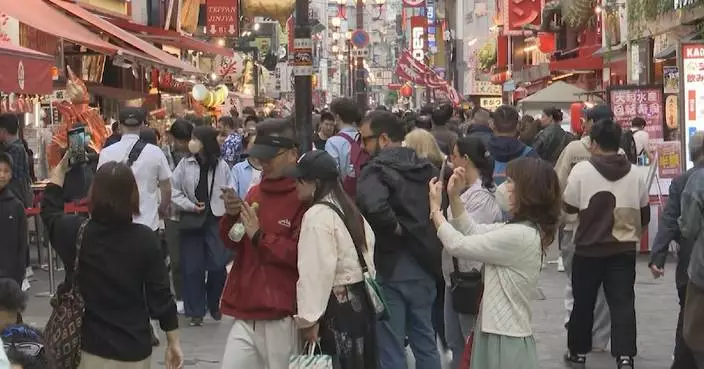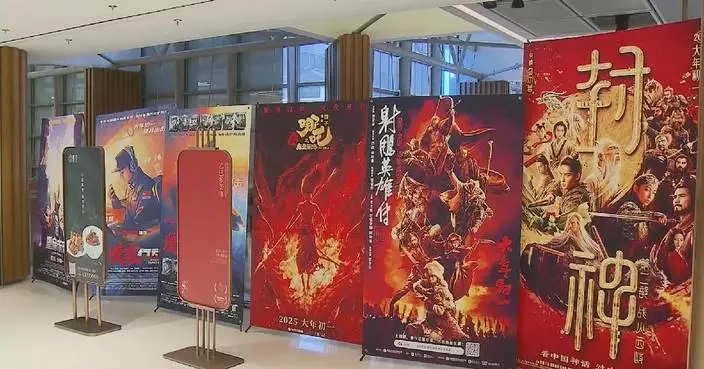The Yunnan Observatories under the Chinese Academy of Sciences captured the special moment when the explosion shock wave of supernova (SN) 2024ggi broke through the surrounding dense circumstellar material (CSM).
This research gives clues for unraveling the mysteries of late-stage stellar evolution and death.
The findings were published in The Astrophysical Journal Letters. "This is an image we took of the supernova. It's in a galaxy, and it looks like a star," said Zhang Jujia, a researcher at the Yunnan Observatories.
This SN 2024ggi is located about 20 million light-years from Earth.
The supernova explosion is a very violent celestial event that usually occurs at the end of a star's life cycle. Supernova explosions release so much energy that they can even outshine entire galaxies for a short time.
The "shock breakout" is the earliest electromagnetic radiation event following an supernova explosion, which can reveal the extreme physics during a star's death throes.
The research team utilized advanced astronomical equipment such as the 2.4-meter Lijiang Telescope of Yunnan Observatory and telescope of the European Southern Observatory and Telescopio nazionale Galileo in Italy to conduct continuous high-cadence spectral monitoring of this supernova during the initial few tens of hours after the explosion.
Eventually, they captured the shock breakout signal, revealing the complex shock wave propagation of SN 2024ggi.
"Through this series of spectrum, we can reconstruct how the material outside the supernova was distributed. So we can figure out what a massive star like this is going to look like in its final evolution stages," said Zhang.
According to the introduction from experts, the stars have existed since the beginning of the universe. They end their lives in the last moment of life with the brilliance that lights up the entire galaxy, resulting in a large number of heavy elements, including gold. Therefore, in a sense, gold is also a true cosmic fragment.
"Elements heavier than iron can only be produced by supernova explosions. So gold, silver are produced by supernovae. They are blasted out into the universe here and there and then later condensed back together," said Zhang.
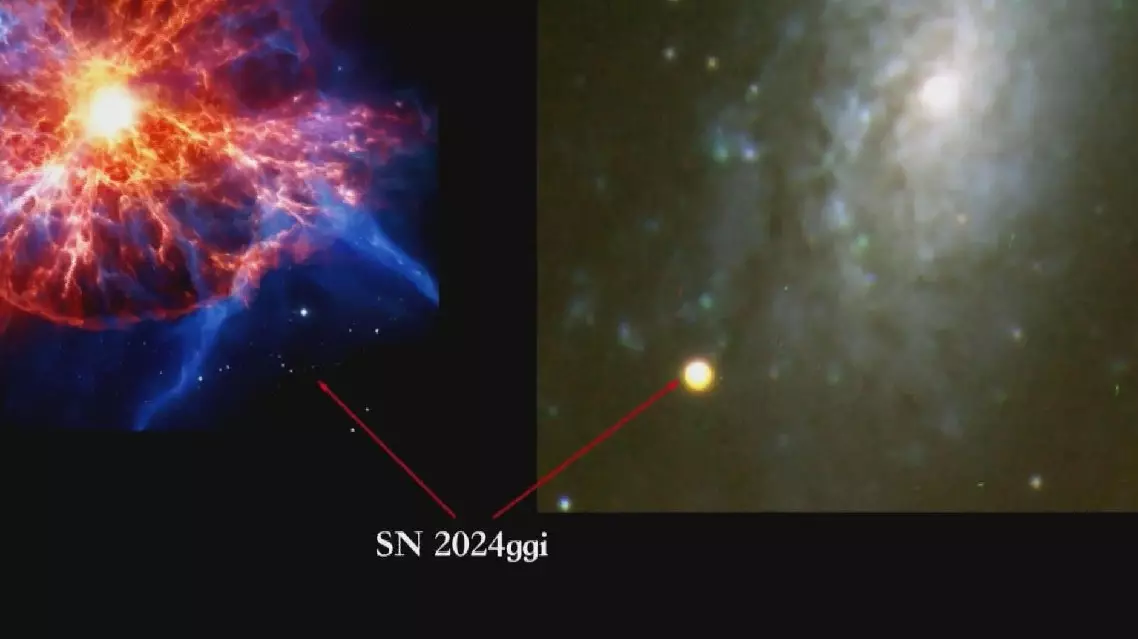
Chinese scientists make new breakthroughs in decoding supernova explosion
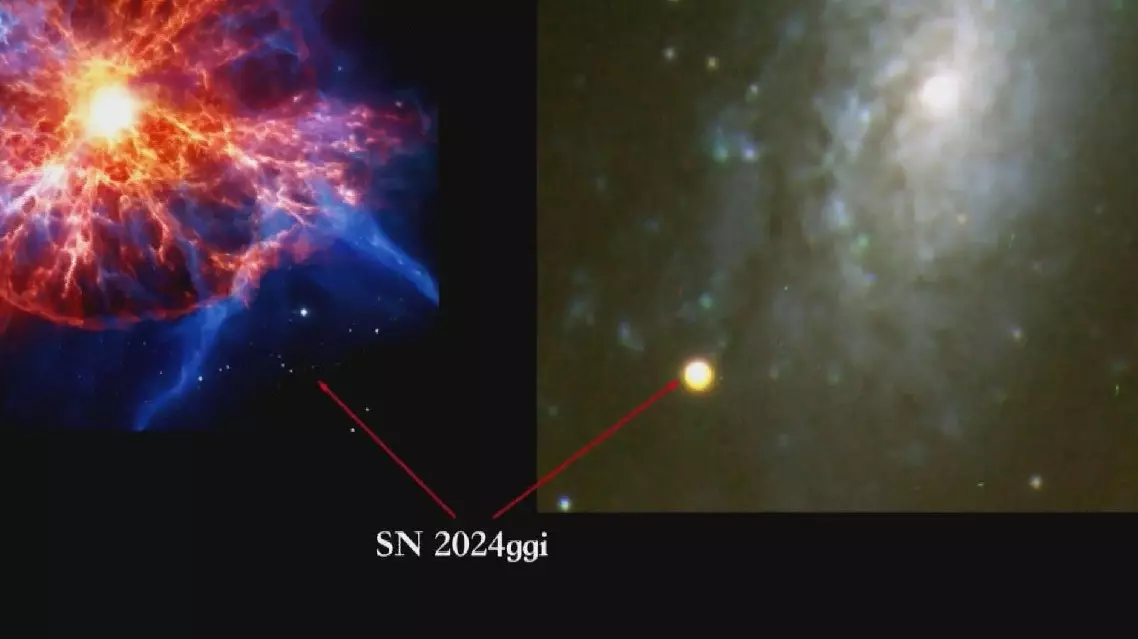
Chinese scientists make new breakthroughs in decoding supernova explosion
A German expert urged joint efforts of the international community to remove trade barriers caused by the U.S. unilateral tariff imposition and safeguard free trade.
Amid widespread opposition, U.S. President Donald Trump signed an executive order on the so-called "reciprocal tariffs" on April 2, imposing a 10-percent "minimum baseline tariff" on all trading partners and higher rates on certain countries.
The order took effect on April 5, leaving all imports subject to 10 percent additional tariffs, except as otherwise provided.
The U.S. also imposed an "individualized reciprocal higher tariff" on the countries and regions with which it "has the largest trade deficits".
Bernd Einmeier, an expert with Germany's ThinkTank Networks GmbH & Co. KG, said the U.S. tariff move will not only pose a challenge to the traditional transatlantic partnership, but also cause losses to itself.
"The situation we are currently experiencing in Europe is indeed unprecedented. The transatlantic relationship has never sunk to such a low point. The unilateral global trade war initiated by the United States has seriously undermined the growth of the world economy and is undoubtedly a wrong path. The stock market plunged in response, and the American people have also suffered a lot," he said.
Einmeier said it is the only right path to prosperity and stability for international community to adhere to dialog and cooperation and uphold the principle of free trade.
"We believe that the international community should join hands to address the current situation, and take coordinated actions to eliminate trade barriers caused by the unilateral tariff hikes imposed by the United States, safeguard free trade and ensure the smooth flow of goods. At present, it is urgently needed to restore rationality to free trade," he said.
The U.S. tariffs have sparked widespread criticism from the German media, business and political circles.
As Handelsblatt reported on Saturday, Friedrich Merz, Germany's incoming chancellor , believes that the financial crisis is bound to occur, but the specific time and incentives are not clear.
He said Trump's policies have increased the risk that the next financial crisis will come earlier than expected, and Europe should come up with a viable response.
Merz's conservative block of CDU/CSU and the Social Democratic Party (SPD) on Wednesday agreed on a coalition deal to form a new federal government.
Following the coalition agreement, Merz is expected to be elected chancellor next month.
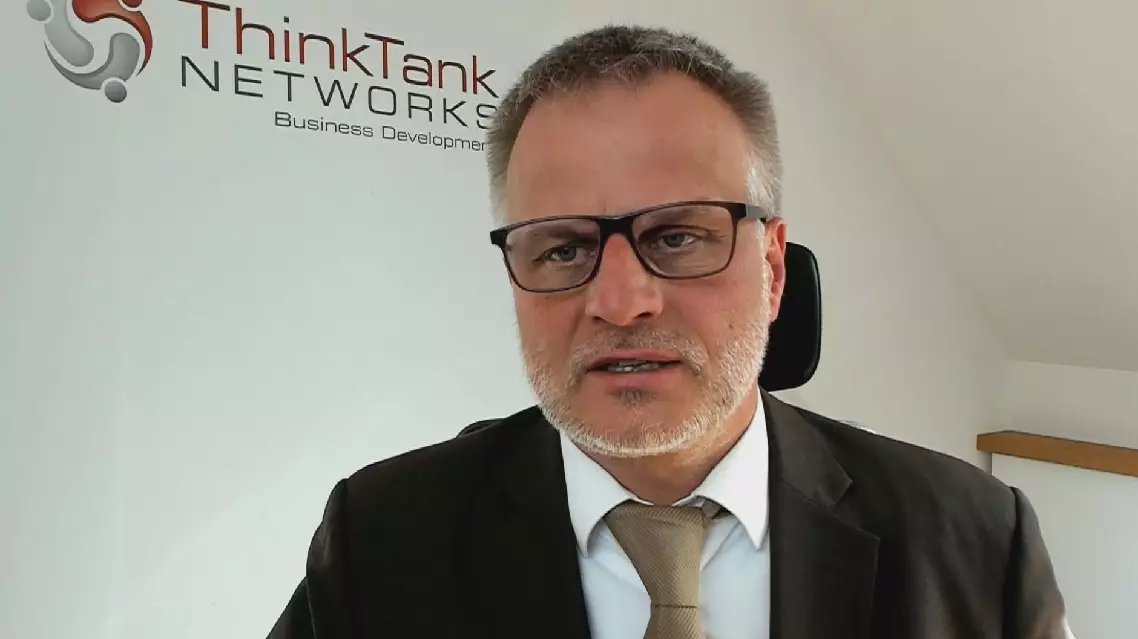
German expert urges joint response to trade barriers caused by US tariffs




